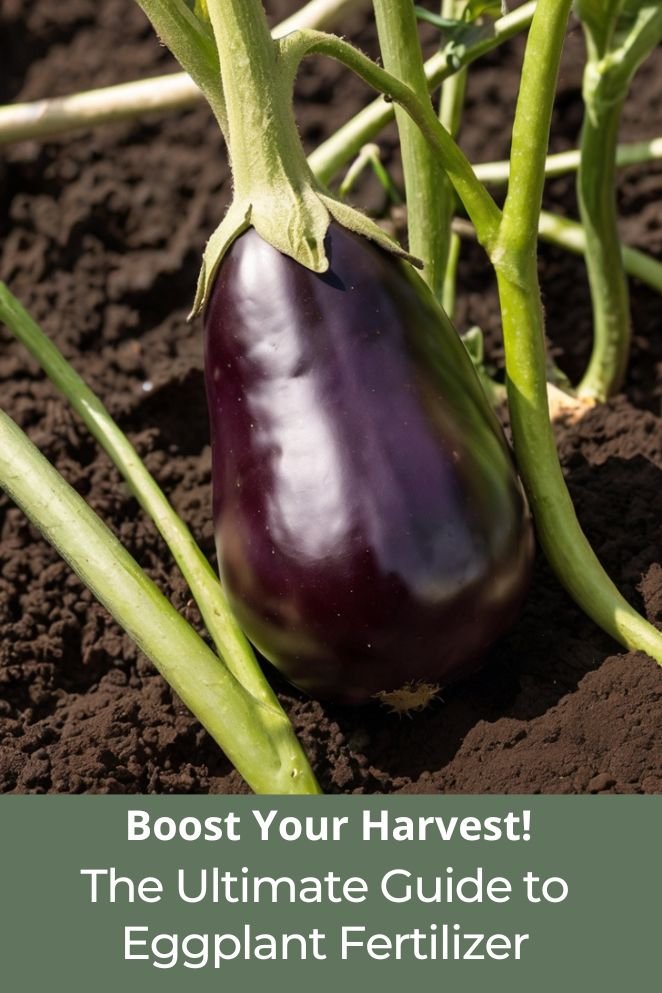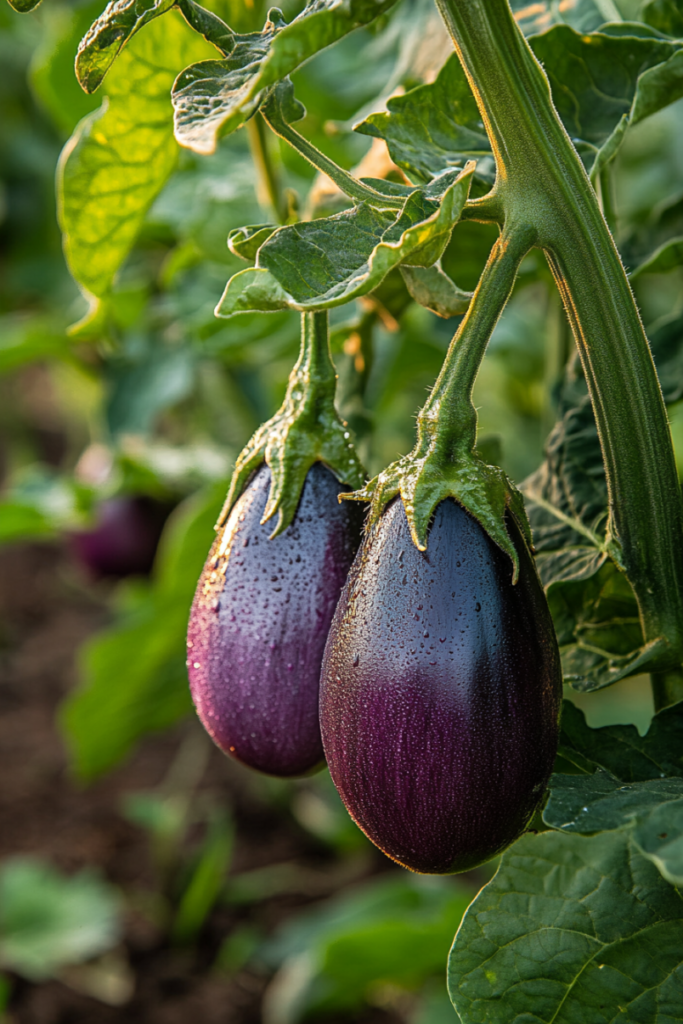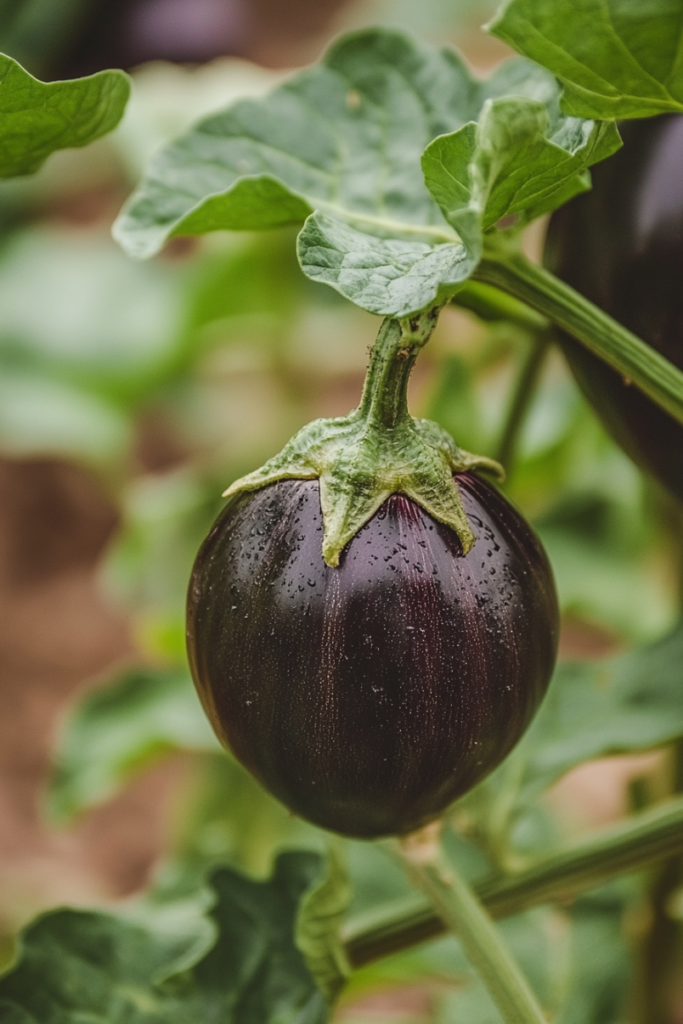
Eggplants, known for their rich, savory flavor, are a staple in many gardens.
To ensure your eggplants thrive and produce an abundant harvest, using the right fertilizer is crucial.
Proper fertilization ensures that the plants receive the essential nutrients they need for strong growth and high fruit production.
In this guide, we’ll explore the benefits of using the correct fertilizer, the nutritional needs of eggplants, and tips on fertilizing at different growth stages to help you achieve the best possible results.
Benefits of Using the Right Fertilizer
Fertilizing your eggplants correctly can significantly enhance their health and productivity. The right fertilizer ensures:
- Stronger root development: Well-fertilized plants establish deeper, more resilient root systems.
- Higher yields: With balanced nutrition, eggplants produce more fruits, leading to a greater harvest.
- Disease resistance: Proper nutrition boosts the plant’s immune system, helping it fend off pests and diseases.
- Better fruit quality: Fertilizer helps eggplants develop more flavorful, nutrient-rich fruits with a firm texture.
A well-nourished eggplant plant will not only look healthier but also provide higher yields, making your investment in fertilizer worthwhile.
Understanding Eggplant Nutritional Needs
Eggplants have specific nutritional needs at various stages of their life cycle.
It’s essential to understand these needs to provide the right balance of nutrients.
Essential nutrients for eggplants
- Nitrogen (N): Nitrogen is critical for leafy growth. It helps produce lush, green leaves that facilitate photosynthesis.
- Phosphorus (P): Phosphorus supports root development and flower formation. It is particularly vital during the early growth stages and when plants are flowering.
- Potassium (K): Potassium promotes fruit development and enhances disease resistance. It’s also necessary for overall plant vigor.
Secondary nutrients
- Calcium: This nutrient is essential for cell wall development and helps prevent blossom-end rot, a common issue in eggplants.
- Magnesium: Magnesium plays a role in photosynthesis and is necessary for healthy leaf growth.
- Sulfur: Sulfur contributes to protein synthesis and helps eggplants develop a deep, rich color.
Micronutrients
Eggplants also need trace amounts of micronutrients for optimal growth. These include:
- Boron: Vital for flowering and fruit set.
- Iron: Helps in chlorophyll production.
- Zinc, manganese, copper: Support enzyme activity and overall plant health.
- Molybdenum: Needed for nitrogen fixation, especially in soils that are deficient in this nutrient.

Types of Eggplant Fertilizer
Choosing the right fertilizer for your eggplants is essential for their growth and productivity.
Here’s a breakdown of the different types of fertilizers you can use, along with their benefits and considerations:
Organic fertilizers
Compost
Compost is made from decomposed organic matter like kitchen scraps and yard waste.
- Benefits: It improves soil structure, helps retain moisture, and provides a slow release of nutrients.
- Best for: Adding compost to your soil can enhance overall soil health and provide steady nutrients over time.
Manure
Well-rotted manure from animals like cows, chickens, or horses.
- Benefits: Rich in nitrogen and other essential nutrients, it helps promote healthy plant growth.
- Best for: Enhancing soil fertility and boosting the nutrient content in the soil.
Blood meal
A dry powder made from animal blood.
- Benefits: High in nitrogen, it encourages vigorous leaf growth, particularly useful in the early stages of plant development.
- Best for: Boosting leafy growth during the initial growth stages of your eggplants.
Bone meal
Ground-up animal bones.
- Benefits: High in phosphorus, it supports strong root development and enhances flowering.
- Best for: Promoting root health and improving flowering and fruit production.
Inorganic fertilizers
Synthetic fertilizers
Chemically formulated fertilizers that provide nutrients quickly.
- Benefits: They offer an immediate nutrient boost, which can be beneficial when plants need a quick pick-me-up.
- Best for: Providing a rapid nutrient supply. Look for balanced N-P-K ratios like 10-10-10 or 5-10-10 for general plant health.
Balanced formulas
Fertilizers with equal amounts of nitrogen (N), phosphorus (P), and potassium (K).
- Benefits: These provide a well-rounded nutrient profile that supports overall plant health and fruit production.
- Best for: Ensuring that plants receive a balanced supply of essential nutrients.

Fertilizing Eggplants at Different Growth Stages
Eggplants, like all plants, have different nutritional needs as they grow.
Let’s break down how to fertilize them effectively at each stage:
Fertilizing seedlings
When your eggplants are still young seedlings, they need just a little help to get started.
At this stage, use a diluted liquid fertilizer that’s higher in phosphorus—like a 5-10-5 formula.
Phosphorus is crucial for strong root development.
You should apply this fertilizer when your seedlings have 2-3 true leaves.
Think of this as giving your baby plants a gentle start to ensure they grow strong roots.
Fertilizing young plants
As your eggplants grow and become established, they need more nutrients to support their development.
Switch to a balanced fertilizer, such as a 10-10-10 formula.
This type of fertilizer has equal parts nitrogen, phosphorus, and potassium.
Nitrogen helps the plant grow lush, green leaves, while phosphorus supports strong roots, and potassium helps overall plant health.
Apply this fertilizer when your plants are well-established and starting to grow more quickly.
Fertilizing mature plants
Once your eggplants start flowering, it’s time to adjust your fertilizer to support fruit development.
Use a fertilizer with a higher potassium content, like a 5-10-15 formula.
Potassium is key for strong flower and fruit growth.
During this stage, you should fertilize every 2-3 weeks to ensure your plants get the nutrients they need to produce plenty of fruit.

Application Methods
Choosing the right way to apply fertilizer can make a big difference in how well your eggplants grow.
Here’s a detailed look at different application methods:
Soil application
Before planting your eggplants, mixing organic fertilizers or compost into the soil can give your plants a great start.
Organic fertilizers like compost improve soil structure and add nutrients slowly over time.
If you’re using inorganic fertilizers, sprinkle them around the base of the plants once they’re in the ground.
Make sure to keep the fertilizer a few inches away from the plant’s stem to avoid burning the roots.
Foliar application
Foliar feeding involves spraying a liquid fertilizer directly onto the leaves of your plants.
This method is especially useful if you notice your plants have nutrient deficiencies.
Use a water-soluble fertilizer and spray it either early in the morning or late in the evening to prevent burning the leaves.
The leaves can quickly absorb the nutrients, which can be a fast fix for nutrient issues.
Drip irrigation
Drip irrigation systems are an efficient way to deliver liquid fertilizers right to the root zone of your plants.
This system minimizes waste and ensures that nutrients are distributed evenly and consistently.
It’s a great choice if you want to maintain steady nutrient levels and reduce the need for manual application.

Tips for Effective Fertilization
To make sure your fertilization efforts are paying off, keep these tips in mind:
Soil testing
Before you apply any fertilizer, it’s a good idea to test your soil.
This will tell you about its pH and nutrient levels.
With this information, you can choose the right type and amount of fertilizer to correct any deficiencies and avoid over-fertilizing.
Avoiding over-fertilization
Using too much fertilizer can cause problems like nutrient imbalances, root burn, and poor fruit development.
Stick to the recommended amounts for your chosen fertilizer and apply it evenly around your plants.
This helps avoid these issues and ensures your plants get what they need without any excess.
Considering environmental factors
The environment can impact how well your plants absorb nutrients.
For example, in hot climates, nutrients may leach out of the soil more quickly, so you might need to fertilize more often.
Likewise, sandy soils drain quickly and may need more frequent fertilization compared to clay soils, which hold nutrients better.
Final Thoughts
Fertilizing eggplants is a critical part of ensuring healthy growth and a bountiful harvest.
By understanding your plant’s nutritional needs, choosing the right type of fertilizer, and applying it correctly, you can help your eggplants thrive.
Whether you prefer organic, inorganic, or a combination of methods, following these guidelines will lead to strong, healthy plants that produce delicious, nutrient-rich eggplants.
FAQs
Eggplants should be fertilized every 2-3 weeks during their growing season, adjusting the type of fertilizer based on their growth stage.
Compost and well-rotted manure are excellent organic fertilizers. Bone meal and blood meal can also provide essential nutrients like phosphorus and nitrogen.
Yes, synthetic fertilizers like 10-10-10 or 5-10-15 can provide a balanced nutrient boost. Just be sure to follow the recommended dosage to avoid over-fertilizing.
Yellowing leaves can indicate a nitrogen deficiency. Apply a nitrogen-rich fertilizer like blood meal or a balanced formula to correct the issue.



